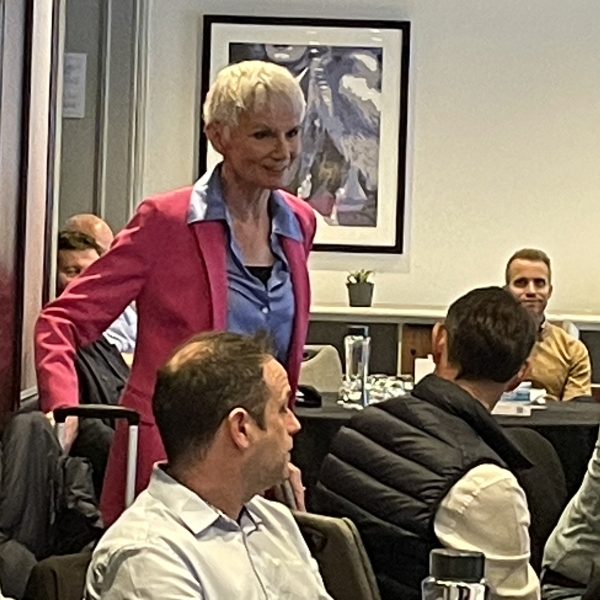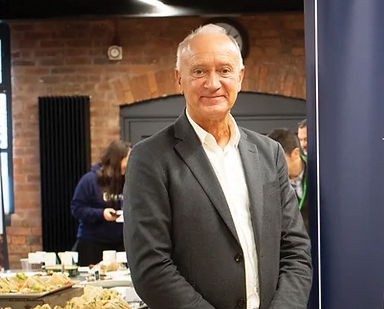As he gets ready to meet the DCMS’ latest fresh faces, Bacta CEO John White speaks to Coinslot about the Government’s intention to review the Gambling Act, explaining that while there’s always a risk to the process, the amusements industry has more to gain than lose.
What lies behind the Government’s plans to review the Gambling Act?
Ever since the FOBT debate, gambling has been in the limelight as the new tobacco. A hostile press narrative has fuelled political concern and vice versa. The focus has been almost exclusively related to the online sector which has had to deal with a procession of negative stories, often self-generated.
All the main political parties saw that this was an issue over which they needed to have a view and they all called for a change in the law to prevent, to a greater or lesser extent, some of the practices that they felt were causing problems.
This government has confirmed that commitment. With the reshuffle completed we can expect Civil Servants to begin the more detailed work of preparing the necessary papers in line with Ministers’ wishes over the breadth and depth of the review.

What do you make of the new ministerial team at DCMS?
To be frank I know very little about the new Secretary of State, Oliver Dowden. I look forward to getting to know him and working with him.
However it is Nigel Huddleston who is responsible for the sectors we cover: tourism, heritage and gambling. We know him well as he was the Parliamentary Private Secretary in the DCMS and attended a number of Bacta events and met with us on a number of occasions through our FOBT and seaside campaigns.
We have already written to both of them setting out our broad policy positions and requesting an early meeting.
Do you think the review of the Gambling Act is a threat to the low-stake gambling sector?
There is always a risk when you open up legislation to review. Political storms can gather and before you know it a knee-jerk reaction to a short-lived press campaign can result in ill-considered legislation. However, my sense of the weather is that we have more to gain than lose by the process as there are a number of aspects of the existing Act that could be changed that would help the industry.
Can you give Coinslot more details?
At this stage we need to consult further with Bacta members about precisely what it is we will ask for, but my recommendations centre not around stakes and prizes, but around things that currently prevent the industry from harnessing its capacity to innovate. With some legislative tweaks I believe we can hand manufacturers, operators, FECs and AGCs a new set of ingredients with which to build exciting new products, better venues and better entertainment.
For example, permitting in-venue linked jackpots to the value of the current maximum prizes would allow a new way to give players a jackpot with a great deal of theatre. We should be looking to expand our player base too with new and exciting products that depart from the traditional model.
Some commentators have suggested that we should seek to get some Category D products like cranes and pushers out of the Act completely as part of the Gambling Act review. Do you agree?
I am not persuaded that this is in itself a good thing for the industry. I understand the sentiment. No-one I meet really thinks cranes and pushers, nor indeed redemption products constitute gambling – it’s just entertainment and fun. However, cranes and pushers are gaming machines under the definition in the Act and I can’t see how you could change that in a way that distinguishes this type of product from other gaming machines and which would satisfy the need for legislative rigour.
In any case, these types of products are in my view controlled in a way that protects the integrity of the industry and satisfies any concerns about gambling, even at a very very low level. To take them out of the Act could lead to an explosion in the siting of these types of machines in locations that are not suitable, by operators that do not adhere to the very strict standards required of current FEC operators or suppliers.
Category D cash payout fruit machines now carry a sticker saying they cannot be played by under 16s unless accompanied by an adult. Why did Bacta make this policy a condition of membership?
Simply put, it was the right thing to do. Seaside amusement arcades have always been safe, fun places that friends and families can enjoy together and have done so for generations, whether on holiday or just for a day trip.
However, we recognised the increased wider focus on gambling in the media, and despite the existing stringent controls currently in place to operate family amusements, we wanted to take additional measures to further reassure the public that traditional family arcades across the country will remain safe and fun environments for all ages to enjoy.
It is a move that has been welcomed by stakeholders.
Post the FOBT maximum stake cut and the formation of the Betting and Gaming Council, has there been any realignment of sector bodies?
The formation of the BGC made absolute sense to me. Online, casino and betting are clearly gambling industries. Bacta members, and indeed those of BALPPA and the Bingo Association, provide elements of low stake gambling in their offer but the emphasis is much more on fun and amusement than on gambling to win money. We know from our own research done by PWC that ‘fun’ is the word our customers overwhelmingly associate with the products and venues we offer.
It is why we do not see a home for our industry in the BGC. The low stake amusement and entertainment sectors have always worked very closely together and will continue to do so. Bacta and the Bingo Association for example are working hand in hand on limit-setting and SR messaging for machines, and BALPPA even shares the Bacta office meaning our mutual interests are always as aligned as they can be. This will be important as we move through the gambling review process as well as on the on-going work outside of that.
It is no secret that during the FOBT campaign Bacta’s relationship with the bookmaking trade body the ABB was strained. With the formation of the BGC I do hope we can restore a professional relationship that allows us to work together where we need to. I have already met with its Chair, Brigid Simmonds and we have scheduled regular meetings with the BGC and our sister trade bodies on a quarterly basis.
Has the FOBT stake cut benefitted the industry? One thing that really surprised me was that despite the industry being admonished for not fully evaluating the impact of the SR measures it takes, neither the Government nor the Gambling Commission seemed to put in place the mechanisms to measure the impact of the stake cut, particularly on problem gambling rates. Having said that it is clear that there have been very identifiable changes in the betting and gaming sectors if not in amusements. The loss of revenue from FOBTs has led to betting office closures. These will continue but so far they seem to be the poorly performing sites that duplicated venues on the High Street and were seemingly only opened in the first place to accommodate four FOBTs. The impact, whilst big, has not been as large as was being forecast at the time.
The big bookmakers have also adjusted their business models by bringing in Self- Service Betting Terminals. The US sports betting market has also opened up, so despite the FOBT stake cut they continue to make a healthy profit. My conversations with members suggest that it is very hard to identify any new income in the amusement machine sector that previously would have been spent on FOBT play. Where AGC income has gone up it seems more to do with investment in new products and venue refurbishments. Pubs have reported a bit of an uptick but it is again hard to pin this on the FOBT stake cut. Most of the money from FOBT play seems to have gone back into players’ wallets or has been spent online or to a lesser extent over the counter in the bookies. We won’t be able to make any conclusive judgement I don’t think for at least another 12 months.
Gambling Commission CEO, Neil McArthur has recently said that there is no glass floor in relation to rates of problem gambling and the industry must continue to work to drive those rates down. Do you agree?
Anyone who has met someone who has experienced or been impacted by problem gambling would have to have a heart of stone not to be moved. Gambling addiction is a terrible thing and the industry must do all it can to protect as many people as it possibly can from experiencing gambling related harm. However, I have not heard anyone suggest that it can be eliminated.
Even if gambling were prohibited, people who wanted to would still gamble and would still become addicted to the activity and still experience harm often in unregulated and dangerous places both physical and virtual. That means that there is a floor to the rate of problem gambling. That’s a fact. What I think Neil is saying is that he thinks we are a long way from reaching it.
Having said that no-one really knows. With problem gambling rates having hovered around 1 percent for decades one could conclude that we may well have reached it already (although my sense is that we haven’t). As I said, we just don’t know. I, for one, am calling on researchers to look into this. If we have hit that floor then we could be wasting a huge amount of time and money doing things that have no impact on problem gambling rates; time and money that could otherwise be diverted into prevention and treatment. I would also argue that society needs to have an honest and open debate about what level of problem gambling it is prepared to tolerate given that it will never be eliminated. With alcohol the public accepts that there will be extensive harms associated with alcohol consumption but is prepared to tolerate those in return for the freedom to enjoy drinking alcohol relatively unrestricted.
This article was originally published on www.coinslot.co.uk




